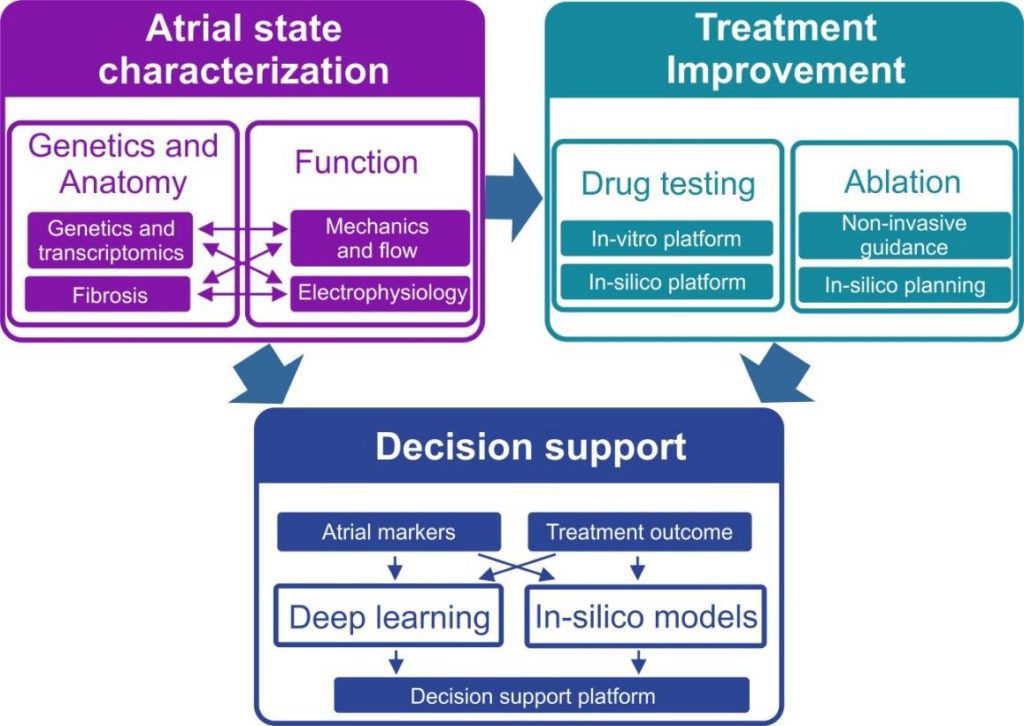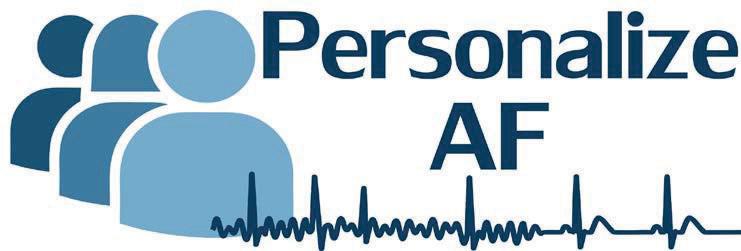Methodology and WPs
AF patients’ treatment needs to be based on the synergistic interaction between novel knowledge on AF’s pathophysiological mechanisms, new stratification methodologies and the most effective and efficient treatment technology for each individual patient.
To enable this interaction, PersonalizeAF has been structured in three scientific interdependent work packages WPs (1-3) corresponding to the three main research objectives: Substrate characterization, Therapies and Stratification.
WP1 will be focused in the development of new technologies, and improving the existing ones, to describe the atrial substrate which is promoting the onset and maintenance of AF. WP1 will consider carefully the tools able to characterize AF progression, in terms of anatomic, electrophysiological and functional changes present during the disease progression, creating a profile of the AF individual manifestation. This will be carried out through novel technologies, such as impedance mapping catheters, image algorithms for fibrotic infiltration detection, non-invasive tools for electric activity characterization and atrial mechanics assessment. All this patient-specific information will be summarized in terms of biomarkers associated with the different disease profiles.
WP2 will create toolboxes and workbenches for the systematic analysis of novel and existing treatments, with both pharmacological and surgical approaches, in order to extract the specific AF phenotype target for each therapeutic option, providing also novel software and algorithms to introduce this novel treatment paradigm in the clinical practice.
WP3 will be focused on providing the best diagnostic and therapeutic option in an easy-to-use support decision platform for the hospital environment that will integrate the collection of patient-specific biomarkers, the classification of the patient in the different disease sub-phenotypes and the election of the best therapy option. This platform will be trained with patient-specific data available in the hospitals of the consortium, as well as with novel clinical and simulated data provided by PersonalizeAF outcomes.
To support the development of the previous WPs, WP4 will be focused on the development of the training activities where all consortium members and ESRs will be involved, including common and specialised seminars, conferences and transferable skills courses.
WP5 will be devoted to the dissemination and exploitation of the project’s results and WP6 is devoted to consortium and project’s management.
WP7 will be dedicated to Data Management and Open Research Data, and WP8 will implement and ensure all the Ethics requirements.

